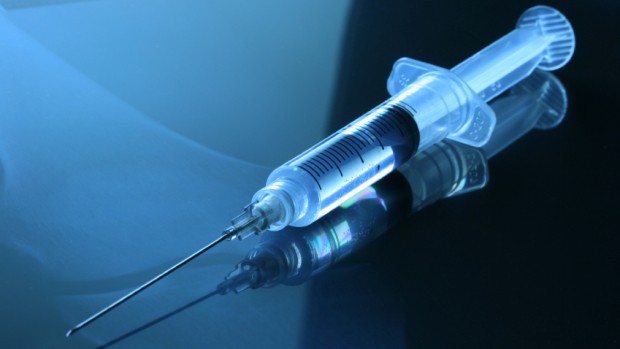Officials in the Democratic Republic of the Congo have approved the use of an experimental Ebola vaccine in the hopes of stemming the spread of a recent outbreak of the deadly virus in the African nation.

While DRC officials approved the use of rVSV-ZEBOV, Congolese authorities and the World Health Organization (WHO) are still deciding whether the small number of confirmed Ebola cases in the country warrants the time and logistical complexity of deploying the vaccine to the remote region of the country, formerly called Zaire.
Public health officials in the DRC have reported at least 43 cases of suspected Ebola and four deaths. Only two of the cases have been positively confirmed in a laboratory to be Ebola. As of Monday there have been no new cases of the virus reported. The last confirmed case of Ebola was reported on May 11.
Despite the slow spread of the virus, experts at WHO are closely monitoring the situation, and teams are already in the isolated Bas-Uélé province in an attempt to contain the outbreak. Officials have also spent the last two weeks preparing the vaccine for transport in the event that they are given the green light to deploy it.
The outbreak, more than 300 miles from the DRC capital of Kinshasa, has very few passable roads and bridges open during this time of the year, so helicopters are required to bring teams and equipment to the town of Likati, where motorcycles take over. Health workers have already built two mobile labs, but a generator in one failed and had to be replaced.
The vaccine was developed during the last major outbreak of the Ebola virus, which began in 2014 in West Africa and caused a global panic. A WHO working group recommended the use of rVSV-ZEBOV in 2015 after a clinical trial in Guinea showed promising results.
There are currently 300,000 doses of the vaccine available after an agreement was reached between international vaccine organization Gavi and Merck, the pharmaceutical company that manufactures rVSV-ZEBOV.
If the vaccine is deployed in the DRC, staff from Doctors Without Borders will first vaccinate health-care workers in the hot zone and then the initial group of people who had contact with those infected as part of a so-called ring strategy used during the 2014 outbreak.
Deploying the vaccine — along with the laboratories, equipment and personnel needed to administer it — is estimated to cost around $14 million. That is a hefty price tag for the second poorest nation in the world. The nation also struggles to contain an ongoing ethnic conflict between the DRC’s Tutsi-controlled government under President Joseph Kabila, who refused to leave office at the end of his term last year, and a Hutu rebel group, the Democratic Forces for the Liberation of Rwanda.
Amid militia clashes and numerous violent protests – one in December left more than 50 people dead – the DRC saw more people leave their homes in 2016 than anywhere else in the world. According to the most recent report by the Internal Displacement Monitoring Centre, 992,000 people fled the violence in 2016, compared to 824,000 in Syria, 659,000 in Iraq and 653,000 in Afghanistan.
The United Nations estimated in April that it will cost at least $11 million to meet the immediate nutritional, health and educational needs of those displaced by the conflict.
The DRC was one of the first countries to experience an outbreak of Ebola when the virus appeared in 1976. The current epidemic is the eighth of its kind in the African nation, coming just three years after the outbreak in West Africa killed over 11,000 people. It is still unclear how Ebola outbreaks begin, but researchers theorize that it could come from people eating infected pieces of “bush meat,” the meat of primates and other wild animals sold in local markets – or from bats carrying the carrying the virus.